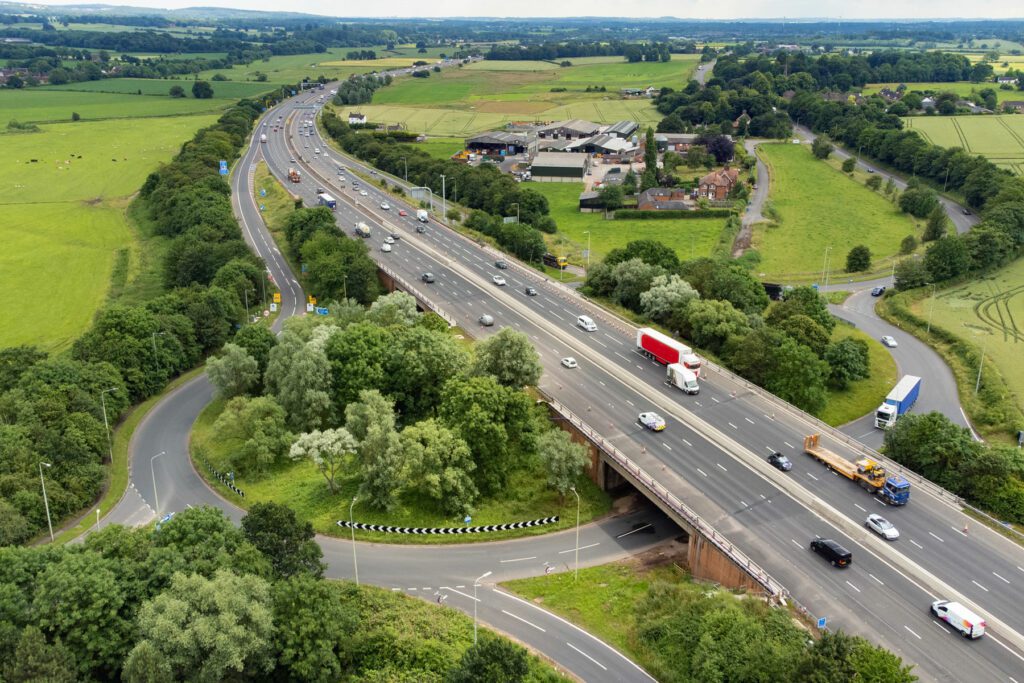Authors
Update August 2025 – On 26 June 2025, Defra updated its guidance to postpone the introduction of biodiversity net gain (BNG) requirements for nationally significant infrastructure projects (NSIPs) from November 2025 to May 2026.
The Environment Act 2021 (EA) modified the frameworks under both the Town & Country Planning Act 1990 and the Planning Act 2008 (PA) to make Biodiversity Net Gain (BNG) a precondition for development consent. However, recognising the timescale and complexity of Nationally Significant Infrastructure Projects (NSIPs), the government delayed implementation of the changes to the PA, to allow NSIP developers time to integrate BNG into their designs. In November 2025, the changes will take effect, and NSIPs in England will be required to deliver BNG.
Biodiversity Net Gain
BNG is an approach to development that includes creating and improving natural habitats, so that development has a measurably positive impact (‘net gain’) on biodiversity. The aim of BNG is to reverse the UK’s declining biodiversity by ensuring that development not only mitigates ecological harm but contributes to nature recovery.
Biodiversity Gain Statements
From November, the Secretary of State must refuse Development Consent Order (DCO) applications that do not meet the objectives of an applicable ‘biodiversity gain statement’.
A biodiversity gain statement sets out the ‘biodiversity gain objective’ for the relevant development type and requires that DCO applications are determined according to whether the objective is met.
The default objective is that the biodiversity value of a development exceeds the pre-development biodiversity value (of the onsite habitat) by at least 10% and is maintained for at least thirty years.
Biodiversity gain statements must describe whether and how the biodiversity gain objective applies to irreplaceable habitats; must specify evidence required in support of DCO applications; and confirm how biodiversity value should be calculated, with reference to a prescribed metric. Biodiversity gain statements will be found in the National Policy Statement (NPS) for each NSIP category, or published separately where no NPS applies to a development, or the relevant NPS has yet to be updated.
BNG and compulsory acquisition
In its response to a 2022 consultation on implementing BNG, the government addressed uncertainty over whether the new regime would permit compulsory acquisition of land for BNG purposes.
The government stated that it would “consider providing guidance or reference in biodiversity gain statements that outlines the reasonable alternatives developers should explore to deliver net gain before they consider compulsory acquisition of land.” This essentially confirmed the established principle that compulsory purchase should be a last resort. We therefore expect that it will be necessary for NSIP promoters to apply the Biodiversity Gain Hierarchy in site selection, and to make the usual reasonable efforts to reach an agreement on purchase.
The point is made more explicitly in the current NPS for Electricity Networks, which confirms that applicants may apply for DCOs where land is needed to provide “mitigation, landscape enhancement and biodiversity net gain”; and that established DCO principles would apply. This was explicitly relied on in a recent DCO approval, which stated that acquisition “for the provision and maintenance of the BNG elements of the Proposed Development is consistent with policy and guidance”.
Where is the new policy?
If the government intends to honour its commitment to apply BNG to NSIPs by November 2025, we should expect a raft of revised NPSs (or standalone biodiversity gain statements) to be published in the coming months.
The government opened a consultation on three revised NPSs for energy infrastructure on 24 April 2025. The updates consolidate and clarify much of what is published elsewhere but contain no biodiversity gain statements.
What should we be doing now?
Though the changes described above have yet to take effect, the policy is clear that DCO applicants should already be accounting for BNG.
The suite of Energy NPSs published since November 2023 “encourage” applicants to use the latest biodiversity metric to calculate BNG outcomes. The Secretary of State “should give appropriate weight” to BNG and consider what requirements should be attached to any consent to ensure that BNG measures, if offered, are delivered and maintained.
The draft revised NPS (April 2025) reiterates these points, and adds that “where possible”, development proposals should seek opportunities to provide BNG, and the Secretary of State should use planning obligations to maximise such opportunities.
Key takeaways
- In November 2025, amendments to the PA will require DCO applications to meet biodiversity gain objectives set out in biodiversity gain statements.
- The default biodiversity gain objective is that NSIPs deliver an increase in the biodiversity value of the onsite habitat by at least 10%, secured for a minimum of 30 years.
- Land may be acquired for BNG purposes alongside the primary purpose of the scheme, but developers must demonstrate a compelling case, following the ordinary principles of compulsory purchase.
- Though BNG is not yet mandatory for NSIPs, it is clear that DCO applicants should account for BNG while NSIP planning. There is a policy expectation that developers seek opportunities to provide BNG, and the Secretary of State will use planning obligations to support this.
Print article


